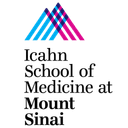This course is part of Systems Biology and Biotechnology.
This course cannot be purchased separately - to access the complete learning experience, graded assignments, and earn certificates, you'll need to enroll in the full Systems Biology and Biotechnology Specialization program. You can audit this specific course for free to explore the content, which includes access to course materials and lectures. This allows you to learn at your own pace without any financial commitment.
4.2
(561 ratings)
47,888 already enrolled
Instructors:
English
پښتو, বাংলা, اردو, 4 more
What you'll learn
Understand molecular interactions in cellular systems
Analyze biological networks and pathways
Apply mathematical modeling to cellular processes
Explore systems-level properties and behaviors
Master computational analysis techniques
Skills you'll gain
This course includes:
8.2 Hours PreRecorded video
10 assignments
Access on Mobile, Tablet, Desktop
FullTime access
Shareable certificate
Get a Completion Certificate
Share your certificate with prospective employers and your professional network on LinkedIn.
Created by
Provided by

Top companies offer this course to their employees
Top companies provide this course to enhance their employees' skills, ensuring they excel in handling complex projects and drive organizational success.





There are 10 modules in this course
This comprehensive course introduces contemporary systems biology focusing on mammalian cells and their functions. Students learn how molecular interactions form functional modules and networks that govern cellular processes. The curriculum covers signal transduction, transcription, cellular behaviors, and emergent properties of biological systems. Through mathematical modeling and computational analysis, students explore how cellular systems work and their applications in biomedicine and drug development.
Systems Level Reasoning Molecules to Pathways
Module 1 · 2 Hours to complete
Pathways to Networks Physical Forces and Electrical Activity in Cell Biology
Module 2 · 2 Hours to complete
Mathematical Representations of Cell Biological Systems Simulations of Cell Biological Systems
Module 3 · 2 Hours to complete
Experimental Technologies Network Building and Analysis
Module 4 · 2 Hours to complete
Midterm
Module 5 · 30 Minutes to complete
Analysis of Networks Topology to Function
Module 6 · 2 Hours to complete
Strengths and Limitations of Different Types of Models Identifying Emergent Properties
Module 7 · 2 Hours to complete
Emergent Properties: Ultrasensitivity and Robustness Case Studies
Module 8 · 2 Hours to complete
Case Studies Systems Biomedicine, Systems Pharmacology and Therapeutic, Perspective
Module 9 · 2 Hours to complete
Final
Module 10 · 30 Minutes to complete
Fee Structure
Individual course purchase is not available - to enroll in this course with a certificate, you need to purchase the complete Professional Certificate Course. For enrollment and detailed fee structure, visit the following: Systems Biology and Biotechnology
Instructor
Dorothy H. and Lewis Rosenstiel Professor
Dr. Ravi Iyengar is a distinguished Professor in the Department of Pharmacology and Systems Therapeutics at the Icahn School of Medicine at Mount Sinai in New York City. He serves as the Principal Investigator and Director of the Systems Biology Center New York, a transdisciplinary research center that focuses on understanding complex biological systems through signal transduction and cell signaling networks. Dr. Iyengar's research employs both experimental and computational approaches to explore how cellular signaling pathways regulate physiological processes and contribute to disease mechanisms. He has published extensively in leading scientific journals, contributing significantly to the fields of systems biology and pharmacology.In addition to his research, Dr. Iyengar teaches courses such as Introduction to Systems Biology and Systems Biology and Biotechnology Capstone, aimed at equipping students with a comprehensive understanding of systems biology principles and their applications in biotechnology. His work not only enhances academic knowledge but also fosters collaboration across various scientific disciplines, making substantial contributions to precision medicine and drug discovery. Through his leadership at the Systems Biology Center, Dr. Iyengar is committed to training the next generation of scientists in quantitative biomedical research, ensuring that they are prepared to tackle complex health challenges
Testimonials
Testimonials and success stories are a testament to the quality of this program and its impact on your career and learning journey. Be the first to help others make an informed decision by sharing your review of the course.
Frequently asked questions
Below are some of the most commonly asked questions about this course. We aim to provide clear and concise answers to help you better understand the course content, structure, and any other relevant information. If you have any additional questions or if your question is not listed here, please don't hesitate to reach out to our support team for further assistance.



